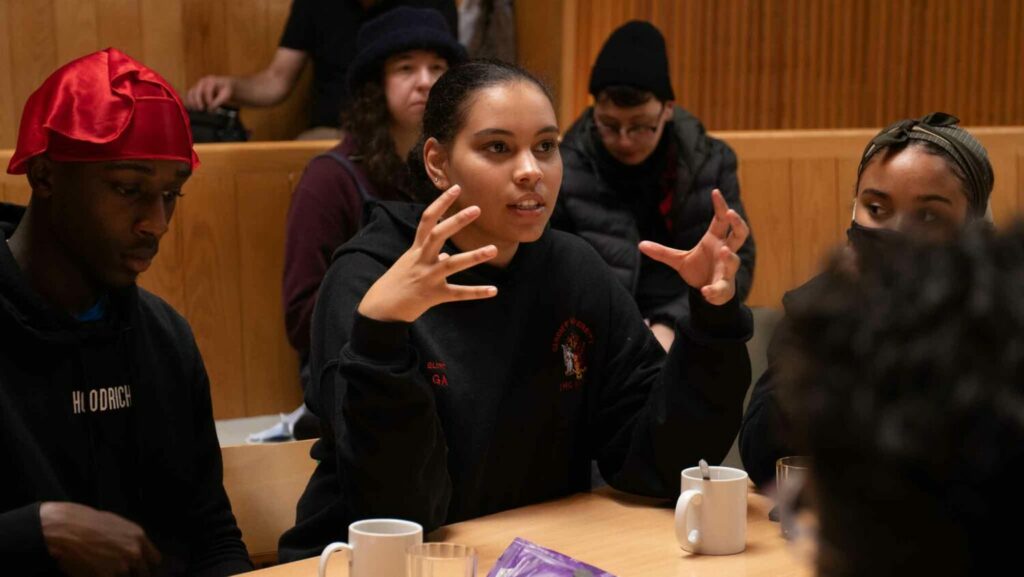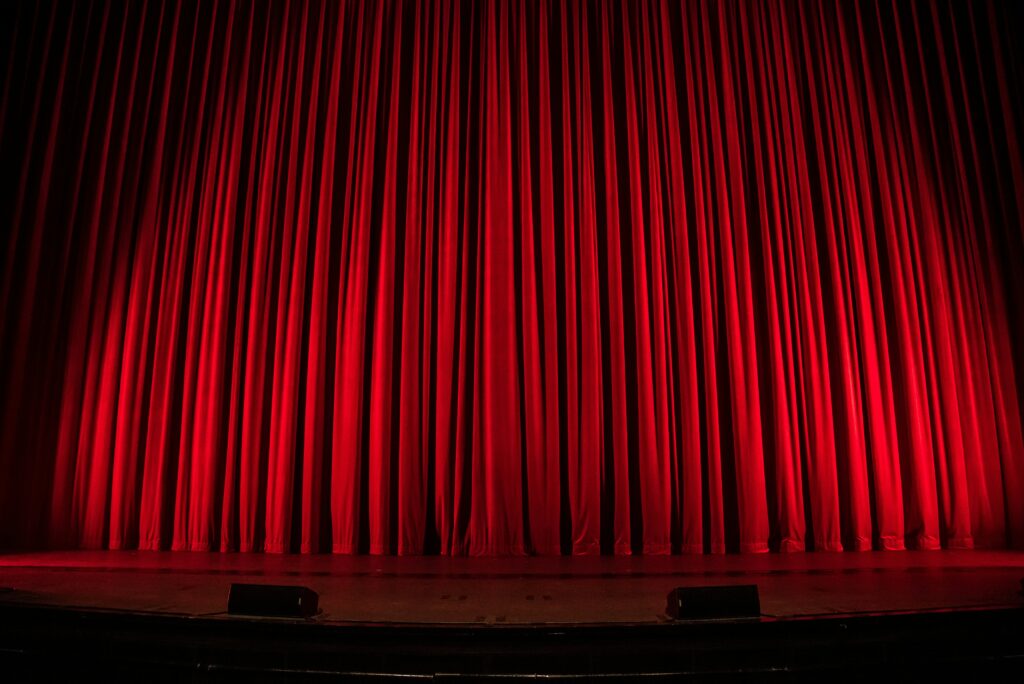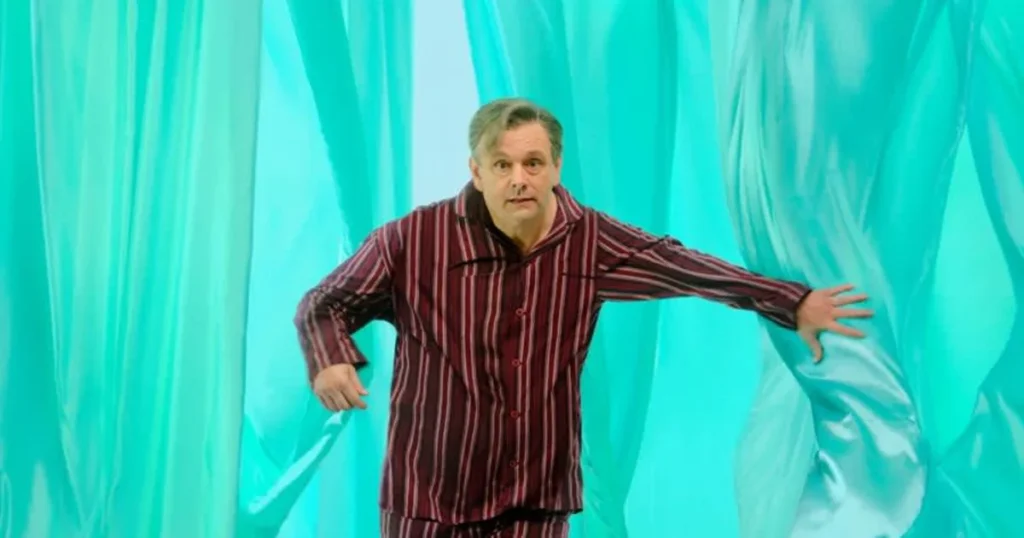Shirish Kulkarni explains how artists and communities are taking on the challenge of imagining and creating a just and sustainable future.
When times are hard – economically, politically, emotionally – it can feel like a luxury to think about the future. Immediate needs must be met, holes must be plugged and just getting through the day in one piece feels like success.
Taking a step back though, history tells us that times get hard precisely because we don’t think about the future enough. Political and economic short-termism mean we’ve consistently failed to build a vision for the future that helps guide our actions towards just and sustainable outcomes.
For example, our unwillingness or inability to take a long-term view on energy is what’s fuelled our over-reliance on Russian gas. This approach is now driving a cost of living crisis which threatens both our present and our future.
Wales’ Wellbeing of Future Generations Act was designed to flip the switch on our thinking, prioritising long term outcomes over temporary fixes and addressing systemic problems rather than simply reacting to their consequences. That approach was the founding inspiration for GALWAD, Wales’ project for Unboxed: Creativity in the UK.
The future isn’t a far away place. The future is here. It starts this second, this minute, this hour. If we don’t imagine the future we want, we can’t possibly know how to get there. We should be thinking about the future more when times are hard, not less.
We hope one legacy of GALWAD will be that it starts conversations, provides resources and builds networks that inspire new ways of thinking and working that will change the future of Wales.
That’s the challenge the GALWAD team set ourselves, but we knew we couldn’t and shouldn’t do that thinking on our own. Together with Alex McDowell, the production designer behind Minority Report and his “World Building” Lab, we invited 120 people from communities from across Wales to imagine the futures they want. We were joined by groups from Blaenau Ffestiniog, Merthyr and Swansea, as well as people with experience of racism and/or migration and members of the d/Deaf disabled community. This was not “parachuting in”, for superficial engagement. This was working deeply with people and networks that members of the creative team have learnt with and from, over many years.
Those initial world builders, and the organisations supporting them have been part of the whole creative process – informing, inspiring and sense-checking every step of the way. The process was a transformative one for everyone involved, and there were more than a few tears. Over and over, we heard, “nobody’s ever asked me what I want the future to be”.
Innovative. Informed. Independent.
Your support can help us make Wales better.
For people and communities who are routinely overlooked, ignored or dismissed, feeling like their opinions were valued and could help spark positive change felt very different to their normal experience. Our hope is that as GALWAD rolls out between September 26th and October 2nd, they will all see and hear something of themselves rippling out across Wales and the world.
The themes reflected back to them (and you) will include explorations of what a “Radically Inclusive” world might look like. One in which people are no longer disabled by society and its systems and where everyone can engage on their own terms instead. One in which Wales welcomes climate refugees and values the skills, experiences and perspective they have to offer. One in which the future is prioritised over the past.
This is deliberately an aspirational, rather than dystopian, future because we have hope. GALWAD is not just a real-time story unfolding on TV, social media and live, it’s a vehicle for sharing that hope, and making it real. It’s a schools programme, a Young Company, a solutions-focused journalism project – “The People’s Newsroom” – and much more. We hope one legacy of GALWAD will be that it starts conversations, provides resources and builds networks that inspire new ways of thinking and working that will change the future of Wales.
The lack of diversity in the Welsh creative sector isn’t a “pipeline problem”. It’s a systems problem and it’s a discrimination problem, but it can be fixed.
Some of that legacy has already been created, because GALWAD has been made by a different kind of creative company. Established creatives, sure, but also a wealth of different voices, different ideas and radical answers to old problems. You can see that change in the most recent GALWAD workforce data. 32% come from Black, Asian or Minority Ethnic/Global Majority backgrounds, 27% are Deaf and/or disabled or living with a long-term medical condition and 20% identify as lesbian, gay, bisexual, queer or ‘other’.
What these figures tell us is that the lack of diversity in the Welsh creative sector isn’t a “pipeline problem”. It’s a systems problem and it’s a discrimination problem, but it can be fixed. This isn’t news to the many organisations already doing brilliantly inclusive work in Wales, but for those still denying there’s a problem (including in my own industry, journalism) this should be another wake-up call. If you make space for us, we’re here. We aren’t “new” voices – we’ve always been here. What GALWAD has given us is the opportunity to be seen and heard.
Inclusion is not just a “nice to have”, it’s a route to deeper, richer and better work. Inclusion breeds innovation, because the people who know best how to fix the system are those of us who know best how badly it’s designed. The system doesn’t work for people of colour, disabled people, trans people, working class people…and so we’re the ones with the greatest incentive to find solutions and build a different future. It takes work, it takes resources and it’s not easy, but it’s worth it.
I recently spent a few days in Blaenau Ffestiniog – the setting for the finale of GALWAD – catching up with members of the creative team, the Young Company and some of the People’s Newsroom group. Everyone had a different story of transformation. The creatives told me how being able to make art, at scale, at home was something they’d never thought they’d be able to do. Some have been able to return to Wales from London, because suddenly new creative opportunities have opened up. Members of the Young Company and the People’s Newsroom team have realised that their ideas, their work and their identities have value and that they have the power to shape the times to come. Their futures have already been changed.
This is what GALWAD set out to do. If we stopped now, I’d be proud of everything we’ve achieved. But this is only the beginning.
All articles published on the welsh agenda are subject to IWA’s disclaimer.





